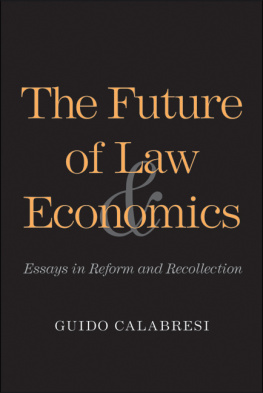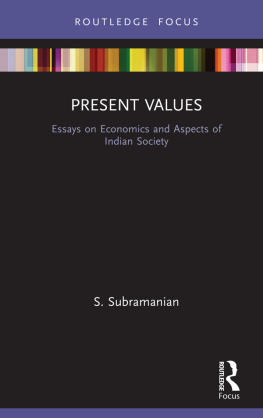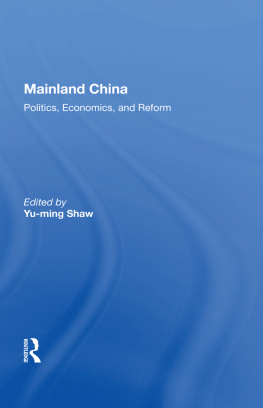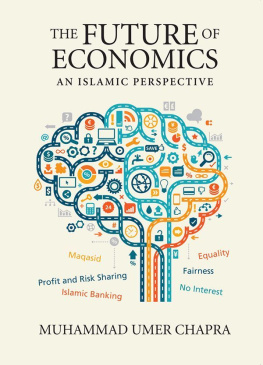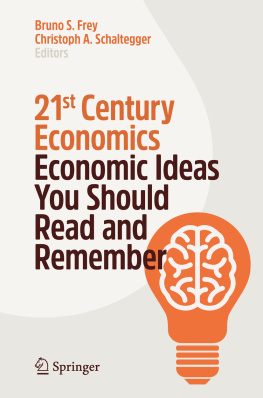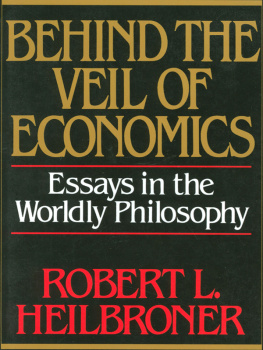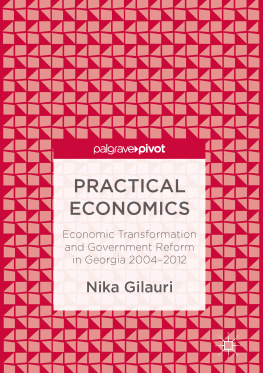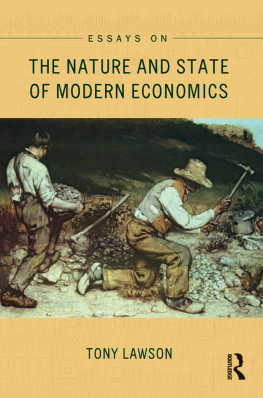Calabresi - The future of law and economics : essays in reform and recollection
Here you can read online Calabresi - The future of law and economics : essays in reform and recollection full text of the book (entire story) in english for free. Download pdf and epub, get meaning, cover and reviews about this ebook. City: New Haven, Conn., year: 2017, publisher: Yale University Press, genre: Politics. Description of the work, (preface) as well as reviews are available. Best literature library LitArk.com created for fans of good reading and offers a wide selection of genres:
Romance novel
Science fiction
Adventure
Detective
Science
History
Home and family
Prose
Art
Politics
Computer
Non-fiction
Religion
Business
Children
Humor
Choose a favorite category and find really read worthwhile books. Enjoy immersion in the world of imagination, feel the emotions of the characters or learn something new for yourself, make an fascinating discovery.
The future of law and economics : essays in reform and recollection: summary, description and annotation
We offer to read an annotation, description, summary or preface (depends on what the author of the book "The future of law and economics : essays in reform and recollection" wrote himself). If you haven't found the necessary information about the book — write in the comments, we will try to find it.
Calabresi: author's other books
Who wrote The future of law and economics : essays in reform and recollection? Find out the surname, the name of the author of the book and a list of all author's works by series.
The future of law and economics : essays in reform and recollection — read online for free the complete book (whole text) full work
Below is the text of the book, divided by pages. System saving the place of the last page read, allows you to conveniently read the book "The future of law and economics : essays in reform and recollection" online for free, without having to search again every time where you left off. Put a bookmark, and you can go to the page where you finished reading at any time.
Font size:
Interval:
Bookmark:


Copyright 2016 by Yale University.
All rights reserved.
This book may not be reproduced, in whole or in part, including illustrations, in any form (beyond that copying permitted by Sections 107 and 108 of the U.S. Copyright Law and except by reviewers for the public press), without written permission from the publishers.
Yale University Press books may be purchased in quantity for educational, business, or promotional use. For information, please e-mail (U.K. office).
Set in Minion type by IDS Infotech, Ltd.
Printed in the United States of America.
ISBN 978-0-300-19589-7 (cloth : alk. paper)
Library of Congress Control Number: 2015940941
A catalogue record for this book is available from the British Library.
This paper meets the requirements of ANSI/NISO Z39.48-1992 (Permanence of Paper).
10 9 8 7 6 5 4 3 2 1
To Kate, Sam, Adam, and Ginevra, who are the future
Contents
Preface
This book has been long in coming. As its subtitle suggests, it represents ideas that I have, for many years, been pondering over. As such, different parts, in different ways, have been the subject of seminars, workshops, and lectures in any number of places. There are too many to recognize individually here. But if a reader sees something in the book and remembers a discussion about it in his or her school, I mean today to let that reader know that I too probably remember and am grateful.
There are, however, some more proximate helpers who must be mentioned. Robert Post, the dean of the Yale Law School, has been unfailing in his support, and so have my colleagues at that school. These friends, both in a recent workshop and individually, have been more than generous in their criticisms, suggestions, and encouragement. That they continue to treat this sometime scholar and oft-time judge as one of their own means more to me than I can say.
John Donohue and the American Law and Economics Association, and Alain Marciano and Giovanni B. Ramello, also .
A book like this could never have been written were it not for the patience and help of my longtime assistant Susan Lucibelli. Her name properly appears in all but one of my books, as she and I have been working together for more years than can decently be said. My law clerks pastCat Itaya, Luke Norris, David Wishnickand presentNate Cullerton, Eric Fish, Kevin Lambdeserve special mention. They have been tireless in their editing, footnoting, and bluebooking, and they did all this without a whimper on top of all their work on my judicial cases and opinions. It is a joy to have people around me like them and my other assistant Marge Greenblatt. Finally, and as always, my deepest thanks go to my wife, Anne, who for more than fifty-four years has been my loving companion, wisest critic, and dearest friend.
One more thing needs to be said. This book is not a scholarly book in the ordinary sense. It does not purport to canvas the literature or to recognize all or most who have written on the various topics that I discuss. That is what I was inclined to do when I was a full-time scholar and teacher. My reluctance to deviate from that mode, together with the fact that I do not have the time to undertake that level of research while also being a judge, explains the long delay in this books coming. Many people, however, have urged me to put into writing, before dotage sets in, ideas that have been percolating in my mind for years. The result is this book. To the extent that the book fails to give proper recognition to scholars who have preceded me with respect to some of the things I here write, I apologize, and I hope that, as a result of this book, their own scholarship may become better known even outside of their own particular fields. I say this in general, but especially as to those practitioners of Welfare Economics who, I do not doubt, have foreshadowed me, but whose work has, unfortunately, not been much noticed by those other practitioners to whom this book is distinctly addressed, the Lawyer-Economists. It is some of these who, in my judgment, on too many occasions proffer criticisms of the existing legal world on the basis of economic theory that does not, without more, justify that criticism.
I
Of Law and Economics and Economic Analysis of Law
The Role of the Lawyer
W hen John Stuart Mill was asked who were the seminal minds of the century (probably 17501850), he gave two names: perhaps surprisingly the poet Samuel Taylor Coleridge and, of course, Jeremy Bentham. Of Bentham, Mill said that he approached all ideas as a stranger and if they did not fit his test (the test of utility), he dismissed them as vague generalities. Mill then went on to say that what Bentham didnt realize was that these generalities contained the whole unanalyzed experience of the human race.
In my way of defining the terms, Bentham can be viewed as the paradigmatic Economic Analyst of Law, while Mills approach is the precursor of that which characterizes Law and Economics.Analysis of Law is, and why Mill and Bentham exemplify each. I will then give examples of recent scholarship of both sorts and where they fit historically. Finally, in this essay I will discuss why legal scholars have a particularly important role to play in Law and Economics, and especially in its future. All this will be a kind of introduction to seven essays that will follow and form the core of this book. In these I will use a Law and Economics approach to consider (1), (2), and (3) what we mean by merit goodsand why economic theory needs to accommodate two very different types of such goods; (4) the perdurance and proper analysis of altruism and of not-for-profit institutionsand what that implies for economic theory; (5) what the use of the liability rule, in practice, tells us of the relationship between markets and command; (6) what economics, while denying it is doing so, often says about the validity of various tastes and values, and why it does this; and (7) what economics can properly, and very usefully, say about the shaping of tastes and values.
A.
What I call Economic Analysis of Law uses economic theory to analyze the legal world. It examines that world from the standpoint of economic theory and, as a result of that examination, confirms, casts doubt upon, and often seeks reform of legal reality. In effect, it acts as an Archimedean place to stand and upon which to place a lever, a lever that permits the scholar, when appropriate, to argue for change in that legal reality. In its most aggressive and reformist mode, having looked at the world from the standpoint of economic theory, if it finds that the legal world does not fit, it proclaims that world to be irrational. And this, of course, is exactly what Bentham did when he tested laws and behavior on the basis of utilitarianism and,
What I call Law and Economics instead begins with an agnostic acceptance of the world as it is, as the lawyer describes it to be. It then looks to whether economic theory can explain that world, that reality. And if it cannot, rather than automatically dismissing that world as irrational, it asks two questions.
The first is, are the legal scholars who are describing the legal reality looking at the world as it really is? Or is there something in their way of seeing the world that has led them to mischaracterize that reality? This question is what Melamed and I were led to ask by our article now commonly known as The Cathedral.
The simple economic model we there developed suggested that there should be situations in which the law permitted the victims of a nuisance to abate the nuisance but required those victims to pay damages to the nuisancor, that is, to compensate the nuisancor for the harm that abatement caused him. Yet there seemed to be no such cases in the legal literature. In other words, economic theory had served to lead legal scholars to a more accurate, more comprehensive view of legal reality.
Next pageFont size:
Interval:
Bookmark:
Similar books «The future of law and economics : essays in reform and recollection»
Look at similar books to The future of law and economics : essays in reform and recollection. We have selected literature similar in name and meaning in the hope of providing readers with more options to find new, interesting, not yet read works.
Discussion, reviews of the book The future of law and economics : essays in reform and recollection and just readers' own opinions. Leave your comments, write what you think about the work, its meaning or the main characters. Specify what exactly you liked and what you didn't like, and why you think so.

